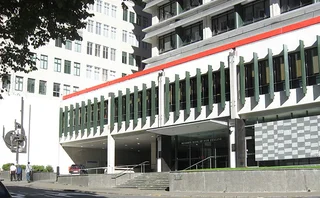
CAP details expose transatlantic split on capital
Today's news that the US Treasury and other regulators may compel US banks to raise capital levels puts them even more at odds with UK and European overseers, who have downplayed the need for more capital in recent weeks.
The Treasury, the Federal Reserve and three other regulators - the Federal Deposit Insurance Corporation, the Office of the Comptroller of the Currency and the Office of Thrift Supervision - said today that they would impose severe stress tests on US banks, which could be compelled to raise additional capital as a result.
The banks would be asked to simulate "a more challenging economic environment" than the current crisis, and, depending on the results of the test, could then be told to increase their capital reserves - if possible by issuing more equity to private investors, but if necessary through capital injections from the US government, which would receive convertible preferred shares in return.
The additional capital is not needed at the moment. "Currently, the major US banking institutions have capital in excess of the amounts required to be considered well capitalised," the Treasury said. But it could be needed to keep banks functioning "under an economic environment that is more challenging than is currently anticipated".
The Treasury emphasised that, despite its willingness to take further stakes in banks, it had no intention of nationalising them. "Because our economy functions better when financial institutions are well managed in the private sector, the strong presumption of the Capital Assistance Programme is that banks should remain in private hands," it said. This follows suggestions from several prominent officials, including former Fed chairman Alan Greenspan and Senate Banking Committee chairman Chris Dodd, that bank nationalisation might be the only way out of the crisis.
Instead, the Treasury says, today's announcement simply means at most a temporary increase in capital requirements. But across the Atlantic, a consensus is growing that raising capital requirements -at least during the current crisis - would cause severe damage.
Speaking this morning, European Central Bank president Jean-Claude Trichet told a London conference that, while increased capital reserves would be a good idea in the medium term, "in the present circumstances, banks should not be requested to hold more capital than is required by the existing capital framework".
Increasing capital requirements in the depths of a downturn would be procyclical - forcing banks to sell assets in already illiquid or distressed markets would make the downturn worse by forcing asset values still lower.
Last month, Adair Turner, chairman of the UK Financial Services Authority, also called for higher capital requirements in the medium term, but said that during the current crisis, banks should be prepared to draw down capital to the minimum possible level.
See also: Trichet: Eurozone CCP will help improve oversight
Trading book capital must be "several times" higher, FSA says
BoE stability chief calls for stress war games
Only users who have a paid subscription or are part of a corporate subscription are able to print or copy content.
To access these options, along with all other subscription benefits, please contact info@risk.net or view our subscription options here: http://subscriptions.risk.net/subscribe
You are currently unable to print this content. Please contact info@risk.net to find out more.
You are currently unable to copy this content. Please contact info@risk.net to find out more.
Copyright Infopro Digital Limited. All rights reserved.
As outlined in our terms and conditions, https://www.infopro-digital.com/terms-and-conditions/subscriptions/ (point 2.4), printing is limited to a single copy.
If you would like to purchase additional rights please email info@risk.net
Copyright Infopro Digital Limited. All rights reserved.
You may share this content using our article tools. As outlined in our terms and conditions, https://www.infopro-digital.com/terms-and-conditions/subscriptions/ (clause 2.4), an Authorised User may only make one copy of the materials for their own personal use. You must also comply with the restrictions in clause 2.5.
If you would like to purchase additional rights please email info@risk.net
More on Central banks
Global investment outlook: 2026 and beyond
Broadening, steepening and weakening: Franklin Templeton’s top investment ideas for 2026 and beyond
Central bank watch: Biased to ease, for now
A mid-year review of the monetary policy outlook for G10 central banks, India, China and South Korea
Adopt FX code or face regulation, warn central bankers
Global code of conduct must be adopted, Schiavi and Debelle insist
Malaysia central bank: credit reporting could unite Asean markets
Asean Economic Community faces challenges, says deputy governor Muhammad bin Ibrahim
BoE's Carney: liquidity support for CCPs is a 'last-resort option'
BoE governor insists clearing houses must have enough liquidity to cope with default of two big member firms
BoE deputy governor Paul Tucker quits after 33 years
Deputy governor is bound for academia in the US after helping with transition to new Carney regime
Local regulators push for consistent standards across Asean region – Thai SEC interview
Underpinning the integration of regional capital markets is a major concern for Vorapol Socatiyanurak, secretary general of Thailand's Securities and Exchange Commission
New governor signs revised policy target agreement in New Zealand
The Reserve Bank of New Zealand’s policy targets agreement will come into effect on the same day Graeme Wheeler takes over as governor; document includes "stronger focus" on financial stability







